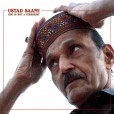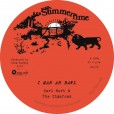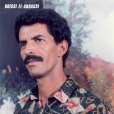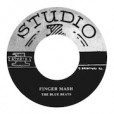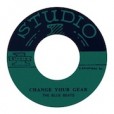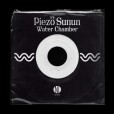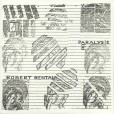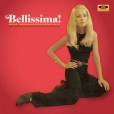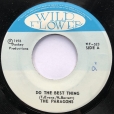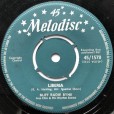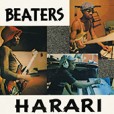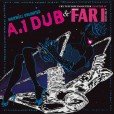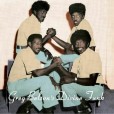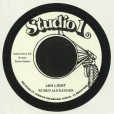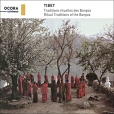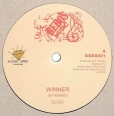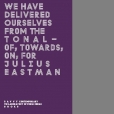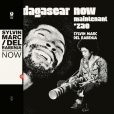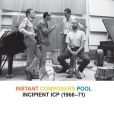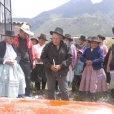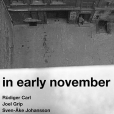Your basket is empty

Another round of forlorn songs about lost loves and other sorrows, driven by mid-tempo, wah wah guitars; this second volume tracking the Rai master into the 1990s.
The Beaters started out amidst the Soweto Soul explosion, inspired by the music of Stax and Motown. They supported the likes of Percy Sledge and Timmy Thomas. During a three-month tour of Zimbabwe (then Rhodesia), they were inspired by the strengthening independence struggle, and musicians such as Thomas Mapfumo, drawing on African musical styles and traditions. Back home in Johannesburg, they swapped their Nehru jackets for dashikis, and grew Afros. Their new Afro-centric rock and funk transformed the SA scene. Black Power in music, to get you on the good foot. ‘During apartheid times we made people laugh and dance when things weren’t looking good,’ remembers drummer Sipho Hotstix Mabuse.
Here, Love Love Love retains the influence of US soul, whilst Harari, Inhlupeko Iphelile, Push It On and Thiba Kamoo encapsulate the new direction; with a bump-jive workout, fired up by Kippie Moeketsi and Pat Matshikiza, to close.
These two early-eighties dub albums, plus a disc with nineteen dubs originally out on the Trojan subsidiary Attack.
We Have Delivered Ourselves From the Tonal – Of, Towards, On, For Julius Eastman
Bonaventure Soh Bejeng Ndikung & others
Savvy Contemporary
264 pages of essays, librettos, lyrics, memories, nuff photos, scores, personal anecdotes by musicians, visual artists, researchers and archivists; including contributions by Mary Jane Leach, George Lewis and Kodwo Eshun, besides Eastman in his own words.
Bracingly hostile towards settled, sanctimonious thinking about the composer and musician — Hans Werner Henze’s favourite bass player, featured on Arthur Russel’s Go Bang — especially any squaring off his sexuality and skin colour in relation to canonical minimalism, this is a punchy, immersive, diverse and thought-provoking homage.
These two sharpened their musical skills in the celebrated seja-jazz band from La Réunion, Le Club Rythmique. In 1967 Sylvin Marc put out a terrific funk 45, saturated in James Brown. Later, he would play bass for Nina Simone on her album Fodder On My Wings, whilst Del Rabenja would work with Manu Dibango.
In these 1972 recordings for Jef Gilson’s Palme label, they are joined by their Madagascan compatriots Ange Japhet, Gérard Rakotoarivony and Frank Raholison — comprising the same group of five which lights up Funny Funky Rib Crib by Byard Lancaster and Soul Of Africa by Hal Singer & Jef Gilson.
The first side showcases the valiha harp-playing of Del Rabenja: three excursions in tribute to the great Rakotozafy, hypnotic and full of spirituality. The second side presents four compositions by Marc — free, grooving and cosmic.
A song-based ritual dedicated to the memory of Sofía Miranda de Bellido, performed one year after her death, in the Ayacucho region of the Central-South Sierra of Peru.
Bells are rung all morning. The coffin is presented at noon. Mass starts at midnight; at four the next morning, harp and violin players pick up the pace.
“I have not died, I will die on the day that you forget me!”
A dazzling survey of the last, bohemian flowering of the so-called Golden Era of Ecuadorian musica national, before the oil boom and incoming musical styles — especially cumbia — swept away its achingly beautiful, phantasmagorical, utopian juggling of indigenous and mestizo traditions.
Forms like the tonada, albazo, danzante, yaravi, carnaval, and sanjuanito; the yumbo, with roots in pre-Incan ritual, and the pasillo, a take on the Viennese waltz, arriving through the Caribbean via Portugal and Spain.
Exhumations like the astoundingly out-there organist Lucho Munoz, from Panama, toying with the expressive and technical limits of his instrument; and our curtain-raiser Biluka, who travelled to Quito from Rio, naming his new band Los Canibales in honour of the late-twenties Cannibalist movement back home, dedicated to cannibalising other cultures in the fight against post-colonial, Eurocentric hegemony. He played the ficus leaf, hands-free, laying it on his tongue. One leaf was playable for ten hours. He spent long periods living on the street, in rags, when he wasn’t in the CAIFE studio recording his chamber jazz-from-space, with the swing, elegance and detail of Ellington’s small groups, crossed with the brassy energy of ska — try Cashari Shunguito — and an enthralling other-worldliness.
Utterly scintillating guitar-playing, prowling double bass, piercing dulzaina, wailing organ, rollicking gypsy violin, brass, accordion, harps, and flutes. Bangers to get drunk and dance to. Slow songs galore to drown your sorrows in, with wildly sentimental lyrics drawn from the Generacion Decapitada group of poets (who all killed themselves); expert heart-breakers, with the raw passion of the best rembetica, but reined in, like the best fado.
Fabulous music, like nothing else, exquisitely suffused with sadness and soul. Hotly recommended.
Sumptuously presented, in a gatefold sleeve and printed inners, with a full-size, full-colour booklet, with wonderful photos and excellent notes. Limpid sound, too, courtesy of original reels in Quito, and Abbey Road in London; pressed at Pallas.
Impatiently returning to the golden age of Ecuadorian musica national, this second round of retrievals is more of a selectors’ affair: less reverent, more free-flowing, with more twists and turns. There is no let-up in the quality of the music, maintaining the same judicious, heart-piercing balance between emotional desolation and dignified endurance, the same bitter-sweet play between affective excess and formal sublimity.
This time around, the woman steal the show. Laura and Mercedes Suasti were child stars, with an exclusive Radio Quito contract. Unlike nearly all the men here, they lived long and prospered: Mercedes died last year, at the age of 93. Gladys Viera and Olga Gutierrez both came to Ecuador from Argentina. To start, Gladys plugged the scandalous new Monokini swimwear; Olga performed for visiting British royalty in 1962. Olga was glamorous but tough. She would make little of the amputation of one of her legs: ‘I don’t sing with my leg.’ She is accompanied on our opener by quintessentially reeling, sultry musica national: haunted-house organ, twinkling xylophone, Guillermo Rodriguez’ heart-plucking guitar-playing, and lilting, dance-to-keep-from-crying double-bass. ‘Sometimes I think that you will leave me with no memories,’ she sings, ‘that you hold only disappointments in store for me… In the future your love will search me out, full of regret. By then it will be too late, there will be no consolation, only disappointment awaiting you.’
Other highlights include the two contributions of Orquesta Nacional: Ponchito Al Hombro, like an off-the-wall forerunner of the Love Unlimited Orchestra, beamed into the tropics from an unknowable time and space; and the tone poem Atahualpa, a mystical yumbo invoking Quito’s most ancient inhabitants, the Kichwa. Also the tremulous, gypsy-flavoured violin-playing of Raul Emiliani, who arrived in Quito from Italy, suffering PTSD from the Second World War; the inscrutable, sardonic experimentalism of organist Lucho Munoz; and the mooing and whistling of Toro Barroso — cow-thief school of Lee Perry — in which a muddy bull dashes home to his darling chola, fearless, full of desire.
Lavishly presented, with a full-size, full-colour booklet, with transporting art-work and expert notes. Luminous sound, by way of Abbey Road, D&M and Pallas.
Truly spell-binding music.
